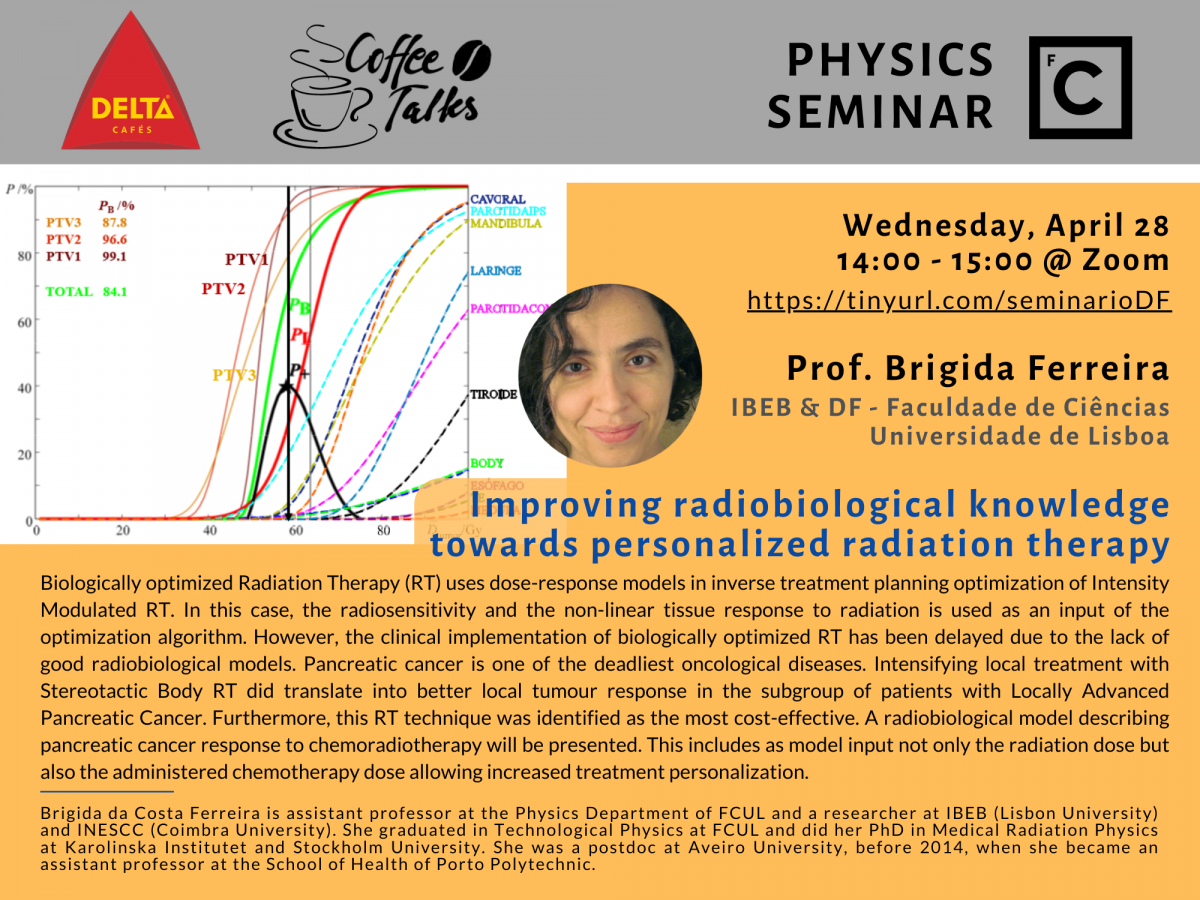Por Brígida da Costa Ferreira (IBEB & DF - Ciências ULisboa).
Biologically optimized Radiation Therapy (RT) uses dose-response models in inverse treatment planning optimization of Intensity Modulated RT. In this case, the radiosensitivity and the non-linear tissue response to radiation is used as an input of the optimization algorithm. However, the clinical implementation of biologically optimized RT has been delayed due to the lack of good radiobiological models. Pancreatic cancer is one of the deadliest oncological diseases. Intensifying local treatment with Stereotactic Body RT did translate into better local tumour response in the subgroup of patients with Locally Advanced Pancreatic Cancer. Furthermore, this RT technique was identified as the most cost-effective. A radiobiological model describing pancreatic cancer response to chemoradiotherapy will be presented. This includes as model input not only the radiation dose but also the administered chemotherapy dose allowing increased treatment personalization.
Short bio: Brígida da Costa Ferreira is assistant professor at the Physics Department of FCUL and a researcher at IBEB (Lisbon University) and INESCC (Coimbra University). She graduated in Technological Physics at FCUL and did her PhD in Medical Radiation Physics at Karolinska Institutet and Stockholm University. Her postdoc was done at Aveiro University where she continued her research under the program CIENCIA2008. In 2014, she became an assistant professor at the School of Health of Porto Polytechnic where she started her current research project in pancreatic cancer therapy. Some of her main interests are biologically optimized radiation therapy, dose-response modelling, evaluation of the efficacy of radiation therapy, and advanced radiation therapy techniques.
Transmissão em direto via Zoom.


